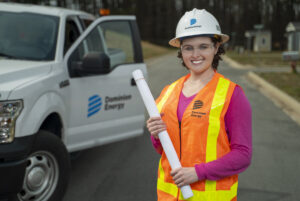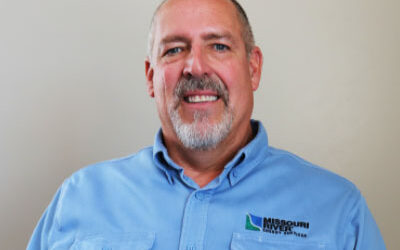Energy Engineers Are…
- Building pipelines to carry renewable natural gas from farms to homes.
- Designing the next generation of nuclear units to supply 24/7 carbon-free electricity.
- Enhancing the ‘smart’ electric grid to increase reliability and speed storm restoration.
- Increasing the efficiency of electric and natural gas appliances to conserve resources.
- Boosting cybersecurity to help keep natural gas and electricity flowing.
- Reducing emissions from pipelines and power stations to fight climate change and clean the air.
- Developing better ways to store solar and wind energy so it is available when customers need it.
- Erecting turbines on land and sea to capture the power of the wind.
- Improving information systems to help customers use energy more efficiently.
- Constructing solar arrays on rooftops, carports, deserts, and open fields.
- Crafting a strategy to quickly recharge the growing fleet of electric vehicles.
- Discovering the next “big thing” in the energy industry.
Civil. Environmental. Nuclear. Mechanical. Biotech. Electrical. Structural. Software. The list goes on. There are almost as many different types of engineers in the energy industry as there are letters in the alphabet.
They are being drawn by an unprecedented demand for their talents as well as opportunities for rapid advancement, intriguing assignments, and a chance to live their values in their work.
“It’s kind of the perfect storm for any kind of engineer to work in the energy industry,” said Larry Durante, a veteran electrical engineer who teaches power systems for National Grid from his base in Clinton, N.Y.
The transformation of the U.S. energy industry is behind much of the demand. Major environmental initiatives in the electric and natural gas sectors are bringing big engineering considerations. The advent of a host of innovative technologies as well as the rapid and complex digitization of information and control systems are also contributing. And, there is a new generation arriving in the workforce bringing with them a new perspective.
Whitney Waldrop, supervisor of engineering projects for Dominion Energy’s natural gas business in North Carolina, likes what she sees in the next generation of engineers.
“They really are in tune with their communities, and they really have that sense of need to help people,” Waldrop said. “They are all about the environment, sustainability. All about making improvement today that will help the future.”

Whitney Waldrop
Waldrop said that is in line with where the energy industry is heading, making the newest generation a good fit.
Antonio Xu Liu is excited about his career at National Grid. It gives him the ability to live his commitment to diversity, equity, and inclusion, to help the environment, and provide personal growth opportunities.
Xu Liu entered National Grid in the company’s engineering pipeline internship program in 2016.
Since then, he has been a strategic planner, program manager, and supervisor of 26 employees. In June 2021, he moved to Human Resources to become global manager, special projects, for diversity, equity, and inclusion (DEI). In his latest role, Xu Liu is helping his company develop its first global strategy for DEI. Outside of work, he serves on the board of a non-profit organization dedicated to increasing LGBTQ+ representation in engineering.
“For me, creating an impact and alignment of values of equity, diversity and inclusion are things I hold very near to my heart and it’s very important where I work,” Xi Liu, who lives in Boston, said “So that was very exciting to see the commitment of the company.”
Durante, Waldrop, and Xu Liu agreed that one of the biggest attractions to being an engineer in the energy field is the opportunity to make a positive impact.

Antonio Xu Liu
“Energy, it’s something that people need every day,” Waldrop said. “It’s very cool to be working on something that’s helping civilization in general.” Or, as Durante put it, “You get to change the world just because of what you are involved with.”
Waldrop said there are misconceptions about being an engineer in the energy industry. One of them is that the work is boring or monotonous.
“That’s not the case,” she said. “No two projects are alike. There are no cookie-cutter projects.”
Xu Liu also likes that energy companies often can offer a variety of career options. He sees an advantage in his new role of having a diverse background and training as an engineer.
”One of my favorite things of having an engineering background … is it really gave me the tools to look at every problem and not be afraid of it,” Xu Liu said. “The tone and the energy and the approach … can really vary based on the background of the people in the room, and looking at it with an engineering mindset is just another tool that can help solve the problem at hand.”




